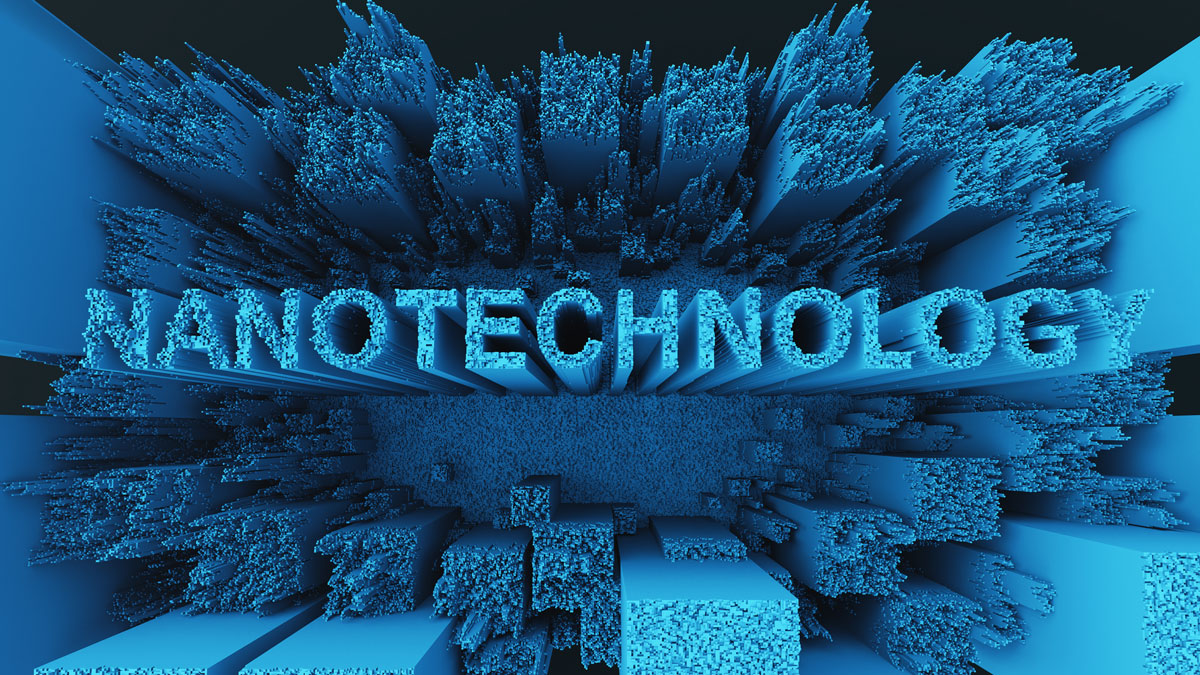
2017 Awards Ceremony
The IEEE Nanotechnology Council 2017 Awards Ceremony was held in conjunction with the IEEE NANO 2017 banquet in Pittsburgh, Pennsylvania (USA) on July 27.
The Pioneer Award in Nanotechnology recipient was Paras N. Prasad, Distinguished Professor of Chemistry, Physics, Medicine and Electrical Engineering, at the University at Buffalo (NY). The Early Career Award in Nanotechnology recipient was Professor Duygu Kuzum of the Jacobs School of Engineering at the University of California, San Diego. The Distinguished Service Award recipient was Dominic Massetti of OmniVision Technologies, Inc., Seal Beach, CA.
IEEE Nanotechnology Council Pioneer Award in Nanotechnology
The Pioneer Award in Nanotechnology is to recognize individuals who by virtue of initiating new areas of research, development or engineering have had a significant impact on the field of nanotechnology. The award is intended for people who are in the mid or late portions of their careers, i.e., at least 10 years beyond his or her highest earned academic degree on the nomination deadline date.
The 2017 recipient of the IEEE NTC Pioneer Award in Nanotechnology is Paras N. Prasad, a Professor at the State University of New York (SUNY), Buffalo. His award citation states: “For pioneering contributions in creating multifunctional nanoprobes, applying nanophotonics in biomedical technology, and educating future researchers”
Professor Prasad is known for his groundbreaking research on optically-tracked nonviral nanoprobe gene delivery. He has also demonstrated nanoprobes for manipulation of optical interactions, controlling light propagation, and redirecting energy flow at the nanoscale for applications in biology and medicine. He is also known for developing “Nanoclinic” multimodal nanoparticle platforms for diagnosing and targeted treatment of diseases.
Prasad is a Distinguished Professor of Chemistry, Physics, Medicine and Electrical Engineering, the highest rank in the New York State University system. He also holds the Samuel P. Capen Chair at the University at Buffalo and is the Executive Director of the multidisciplinary Institute for Lasers, Photonics and Biophotonics. Dr. Prasad has published over 700 scientific papers, co-edited six books, and co-authored a monograph (with D.J. Williams), “Introduction to Nonlinear Optical Effects in Molecules and Polymers.” Dr. Prasad published “Introduction to Biophotonics,” the first monograph in this field, which authoritatively defines the field, details its scope and identifies emerging opportunities. He has also published monographs, “Nanophotonics,” which includes its impact on Nanomedicine and “Introduction to Nanomedicine and Nanobioengineering ”. Dr. Prasad also holds a number of patents.
Dr. Prasad has received much recognition for his pioneering contributions. He received Scientific American’s Top 50 (2005), Fellow of SPIE (2005), 2003 & 2008 Inventor of the Year in Life Sciences Award by the Technical Council of the Niagara Frontier (2004,2009).He is a Fellow of the American Physical Society and a Fellow of the Optical Society of America. He is also a recipient of the prestigious Sloan and Guggenheim fellowships. Dr. Prasad has received the Schoellkopf Award of the Western New York American Chemical Society for his academic achievements. He was also awarded the Technology/Discovery award from the Western New York Health Care Industries Association for his pioneering work on “Nanoclinics” for Biophotonics. He has been awarded by the Chancellor of the State University of New York system the “Excellence in Pursuit of Knowledge” award. He was a recipient of the Morley Prize of the Cleveland Section of the American Chemical Society. He has received a honorary professorship from Zhejiang University in China for his pioneering work in photonics, nanophotonics and biophotonics, as well as for his world leadership advancing a global infrastructure in science and technology. Recently he received an honorary doctorate from the Royal Institute of Technology in Sweden (KTH) for his pioneering work in areas including the use of light-based technologies to address important, global health problems. Aix-Marseille University (AMU) in France has recently awarded Dr.Prasad with a Honorary Degree.Publishing of his book “Introduction to Nanomedicine and Nanobioengineering” was recently recognized by the University at Buffalo in the Sixth Salute to UB Authors.
Dr. Prasad has also been a leader in promoting international scientific infrastructures. He organized six “International Conferences on Frontiers of Polymers and Advanced Materials” (India, 1991; Indonesia, 1993; Malaysia, 1995; Egypt, 1997; Poland, 1999; Brazil, 2001). Each of these conferences brought together top level scientists, engineers and government representatives from more than 20 countries to develop a global infrastructure for advanced materials and emerging technologies.
Web: http://www.photonics.buffalo.edu/index.html
IEEE Nanotechnology Council Early Career Award in Nanotechnology
The Early Career Award in Nanotechnology is to recognize individuals who have made contributions with major impact on the field of nanotechnology. Up to two awards may be given per year. There may be one award for academics (persons employed by colleges or universities) and one for persons employed by industry or government organizations.
The 2017 recipient of the IEEE NTC Early Career Award in Nanotechnology is Duygu Kuzum at the University of California, San Diego. Her award citation states: “For pioneering contributions towards the development of nanoelectronic synaptic devices for neuromorphic computing.”
Professor Kuzum has done path breaking work on nanoelectronic synaptic devices, demonstrating for the first time that a phase change nanoelectronic synapse can be programmed to emulate synaptic learning in the brain. She also invented transparent graphene electrodes for mapping brain activity with high resolution. More recently, she has been developing nanoelectronic synaptic devices with new functionalities being used to create energy efficient and scalable machine learning hardware.
Kuzum received her Ph.D. in electrical engineering from Stanford University in 2010, followed by a postdoctoral fellowship in bioengineering at University of Pennsylvania from 2011 to 2015. In 2004, she received her B.S. in electrical engineering from Bilkent University in Ankara, Turkey. She is the author or co-author of over 40 journal and conference papers. Her work on nanoelectronic devices was featured on the cover of Nano Letters, highlighted in Nature and covered by several media outlets (New Scientist, Stanford News Report, Nanowerk, EE Times). She was a recipient of various awards including a Texas Instruments Fellowship and Intel Foundation Fellowship, PopTech Science and Public Leaders Fellowship Award in 2013 and Penn Neuroscience Pilot Innovative Research Award in 2014. She was also named among the Innovators Under 35 (TR35) by MIT Technology Review in 2014.
Web Page: http://neuroelectronics.ucsd.edu/
IEEE Nanotechnology Council Distinguished Service Award
The Distinguished Service Award recognizes an individual who has performed outstanding service for the benefit and advancement of the IEEE Nanotechnology Council.
The 2017 recipient of the IEEE NTC Distinguished Service Award is Dominic Massetti of OmniVision Technologies, Inc., Seal Beach , Calif. His award citation states: “Exemplary service to the IEEE San Francisco Bay Area Nanotechnology Council Chapter by organizing and facilitating educational and netwo rking events.”
Mr. Massetti played the key role in forming the IEEE San Francisco Bay Area Nanotechnology Council Chapter, and has served as its President in 2009 and 2014. He has helped with all aspects of the organization and promotion of 12 monthly seminars and events for the past 10 years. He has obtained corporate sponsorship for these events and he has made extraordinary efforts to create nanotechnology awareness among students. He has also devised meetings where job seeking engineers speak to an audience of hiring technical managers and recruiters.
Massetti has over 30 years of industry experience spanning multiple applications of Integrated Circuit device and fabrication technology. Most recently he directed technology related assessments of intellectual property for IPValue Management. He mined and evaluated the patent portfolios of Fortune 500 high-tech companies. He previously served as Senior Director, VLSI Manufacturing Technology, for HDD industry leader Seagate Technology where he ensured mass market commercialization of state-of-the art IC fabrication technology.
Prior to that, he was Director of Technology Development & Quality Systems at Texas Instruments. There he developed and applied high speed analog BiCMOS manufacturing technologies to products used in high capacity storage systems, wireless communication components, and PC processor interfaces. Earlier in his career he developed CMOS logic and non-volatile memory technologies, and managed pilot fabrication lines at NCR Microelectronics and Philips Semiconductors.
He has been active in promoting nanotechnology by organizing forums and speaking on the subject. He has published related on-line articles for NanoInvestorNews. As an NSF peer reviewer he continues to support investments in small high tech businesses.
Mr. Massetti holds a Master of Science degree in Applied Solid State Physics from the University of California, San Diego. He also earned his Bachelor of Science degree in Physics.
TNANO Best Paper 2016 Award
At the beginning of each year, T-NANO selects a paper that appeared in the Transactions during the previous calendar year for its Best Paper Award. Candidate papers are nominated by members of the Editorial Board. Evaluation is done by members of the Senior Editors Panel, with criteria including technical merit, originality, potential impact on the field, clarity of presentation, and practical significance for applications.
The TNANO Best Paper Award for 2016 is “Wave-Based Neuromorphic Computing Framework for Brain-Like Energy Efficiency and Integration”, written by Yasunao Katayama, Toshiyuki, Yamane, Daiju Nakano, Ryosho Nakane, and Gouhei Tanaka.
Yasunao Katayama received B.S. and M.S. degrees in physics from Tokyo University, Tokyo, Japan, in 1984 and 1986, respectively, and a Ph.D. in electrical engineering from Princeton University, Princeton, NJ, in 1994. He is currently with IBM Research – Tokyo, Tokyo, Japan. He has been involved with a variety of academic disciplines covering physics, information theory, and semiconductor/optical communication research. More specifically, he has been working on positron physics, fractional quantum Hall effect, quantum devices, numerical analysis, memory technology and systems, logic/DRAM integration, information theory, wireless and optical communication systems, and more recently on a new computing paradigm including neuromorphic computing.
Toshiyuki Yamane received B.S., M.S., and Ph.D. degrees in mathematical engineering and information physics from Tokyo University in 1995, 1997, and 2000. He joined IBM research – Tokyo in 2000. Since then, he has been working on a variety of projects related to mathematical engineering based on statistics and signal processing. His major research interests include error corrections, wireless communications, and design methodology and performance analysis of the conventional and future bio-inspired computing systems. He is a member of the IEEE Communications Society.
Daiju Nakano received B.S. and M.S. degrees in physics from the University of Tokyo in 1994 and 1996. He joined IBM in 1996 and is currently a researcher with IBM Research, Tokyo Research Laboratory. His major field is optical physics related to laser spectroscopy and at IBM he has been involved with liquid crystal display technology, TFT-array tester development and wireless communication research. He is currently engaged in research on neuromorphic science and engineering, more specifically on designing hardware architecture for neuromorphic computing.
Ryosho Nakane received B.S. and M.S. degrees in electronics engineering from Hokkaido University, Sapporo, Japan, in 2000 and 2002, and a Ph. D. in electronics engineering from the University of Tokyo, Tokyo, Japan, in 2005. Since October 2013, he has been a Project Research Associate Professor at the University of Tokyo. His current research interests include semiconductorbased spintronic devices, semiconductor-based electronic devices for next-generation integrated circuits, and neuromorphic electronic devices for energyefficient systems. He is a member of the IEEE Electron Device Society and the Japan Society of Applied Physics.
Gouhei Tanaka received a B.E. degree in mathematical engineering and a Ph.D. in complexity science from the University of Tokyo, Tokyo, Japan, in 2000 and 2005, respectively. Currently, he is a Project Associate Professor at the Graduate School of Engineering, the University of Tokyo. His research interests include mathematical modeling of nonlinear dynamical phenomena and its application to biological, technological, and engineering systems.





